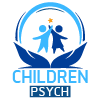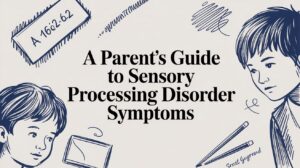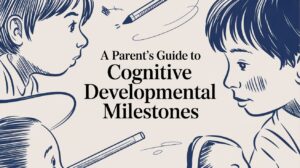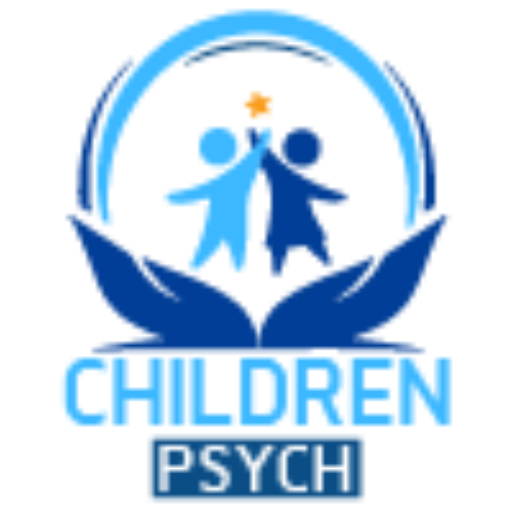Here’s an overview:
- Introduction to Child Psychiatry
- Understanding the Role of a Child Psychiatrist
- The Importance of Early Intervention
- Personalized Treatment Plans Devised Through In-Person Consultations
- Building Trust and Comfort Through Face-to-Face Interaction
- Accurately Diagnosing Behavioral and Emotional Disorders
- The Advantages of Integrated Care Teams
- Supporting Families and Caregivers
- Monitoring and Adjusting Treatment Progress
- Access to Specialized Resources and Services
- Conclusion: The Long-Term Benefits of In-Person Child Psychiatry Visits
Introduction to Child Psychiatry
Child psychiatry is a specialized field of medicine focused on diagnosing, treating, and preventing mental health disorders in children, adolescents, and their families. This discipline encompasses a wide range of emotional, developmental, and behavioral issues, from anxiety and depression to autism spectrum disorders and ADHD.
Psychiatrists specializing in child psychiatry possess extensive training that allows them to understand the complexities of a child’s mind and the interplay of biological, psychological, and social factors. They utilize a variety of therapeutic techniques tailored to the needs of young patients, offering personalized care plans to foster their emotional and psychological development.
Scope of Child Psychiatry
Child psychiatry covers numerous psychological conditions, including but not limited to:
- Attention Deficit Hyperactivity Disorder (ADHD): Evaluation and treatment of hyperactivity, impulsiveness, and attentional issues.
- Autistic Spectrum Disorders (ASD): Comprehensive care for varying degrees of social, communication, and behavioral challenges.
- Mood Disorders: Addressing depression, dysthymia, and bipolar disorders in young individuals.
- Anxiety Disorders: Managing generalized anxiety, obsessive-compulsive disorder, and specific phobias.
Methods and Approaches
Child psychiatrists employ a multifaceted approach, incorporating:
- Psychotherapy: Cognitive-behavioral therapy (CBT), play therapy, and family therapy to address emotional and behavioral problems.
- Pharmacotherapy: Prescribing and managing medication when necessary to alleviate symptoms and improve quality of life.
- Psychoeducation: Educating families about mental health conditions to foster a supportive home environment.
- Collaborative Care: Working alongside pediatricians, educators, and other mental health professionals for comprehensive care.
Importance of Early Intervention
Early diagnosis and intervention in child psychiatry are crucial for positive long-term outcomes. Prompt treatment can mitigate symptoms, improve social skills, and enhance academic performance. Addressing mental health issues early helps prevent the progression of more severe problems in adulthood, contributing to overall well-being and development.
The Role of a Child Psychiatrist
A child psychiatrist’s role extends beyond clinical treatment. They advocate for their patients and ensure that the child’s environment supports their mental health needs. This involves coordinating with schools, community resources, and family members to create an encompassing support system tailored to the child’s unique requirements.
Understanding the Role of a Child Psychiatrist
A child psychiatrist is a medical doctor who specializes in the mental health of children and adolescents. Their role is multifaceted and vital for the overall well-being and development of young individuals. Below is an outline of their primary responsibilities and areas of expertise:
Diagnostic Evaluations
Child psychiatrists conduct thorough assessments to diagnose various mental health, emotional, and behavioral disorders. These evaluations typically include:
- Clinical Interviews with the child and their parents or guardians
- Psychological Testing to measure cognitive abilities and emotional function
- Behavioral Assessments to observe and analyze behavior patterns
Treatment Planning
Once a diagnosis has been made, the child psychiatrist develops a comprehensive treatment plan. This plan may encompass:
- Medication Management to address symptoms of disorders such as ADHD, anxiety, and depression
- Psychotherapy to provide therapeutic support, including Cognitive Behavioral Therapy (CBT) or Family Therapy
- Behavioral Interventions aimed at modifying detrimental behaviors and promoting positive ones
Collaboration with Other Professionals
Child psychiatrists often work in tandem with a team of medical and educational professionals to ensure holistic care:
- General Practitioners and pediatricians for physical health monitoring
- Psychologists for specialized therapy
- Educators and School Counselors to support academic and social development
Parental Guidance and Support
Recognizing the crucial role parents play in a child’s mental health, child psychiatrists offer guidance and support to families:
- Educational Sessions to provide knowledge about the child’s condition
- Parental Counseling to help parents effectively support their child’s treatment plan
- Crisis Intervention strategies to manage acute situations at home or in school
Monitoring and Follow-Up
Effective mental health care involves ongoing monitoring and adjustments:
- Regular Follow-Ups to track progress and modify treatments as needed
- Outcome Assessments to evaluate the effectiveness of interventions
- Relapse Prevention Plans to maintain long-term well-being and stability
Understanding the role of a child psychiatrist is essential in appreciating the comprehensive and specialized care they offer. Their expertise is indispensable in promoting the mental health and overall development of young individuals.
The Importance of Early Intervention
Early intervention is critical when addressing mental health concerns in children. Identifying and addressing psychiatric issues as early as possible can significantly influence a child’s developmental trajectory and long-term outcomes. Visiting a child psychiatrist in person offers numerous advantages that facilitate early intervention.
Early Diagnosis
- Accurate Assessments: In-person evaluations allow psychiatrists to observe children’s behavior and interactions directly, leading to more accurate diagnoses.
- Timely Treatment Plans: Swift identification of issues enables timely intervention, reducing the risk of conditions worsening.
Personalized Care
- Tailored Therapy Sessions: Each child’s treatment plan can be customized to meet specific needs, making therapy more effective.
- Parental Guidance: Parents receive direct support and strategies to manage their child’s issues, promoting a collaborative approach to treatment.
Comprehensive Evaluations
- Multidisciplinary Approach: Child psychiatrists often work with other healthcare professionals to provide comprehensive care, addressing various aspects of a child’s well-being.
- Behavioral Observations: In-person visits allow for detailed observations of a child’s behavior, which is essential for accurate diagnosis and treatment planning.
Enhanced Communication
- Non-Verbal Cues: Psychiatrists can pick up on non-verbal cues and body language that are often missed in virtual sessions.
- Immediate Feedback: Families can receive immediate feedback and adjustments to treatment plans, ensuring ongoing effectiveness.
Social and Emotional Development
- Interaction Skills: Regular face-to-face sessions help children develop better social and interaction skills.
- Emotional Support: Direct interaction with a psychiatrist provides a strong support system, helping children feel understood and valued.
Prevention of Future Issues
- Early Coping Strategies: Teaching children effective coping mechanisms early on helps prevent future psychiatric issues.
- Building Resilience: Early interventions help build resilience, equipping children to handle life’s challenges more effectively.
Overall, the importance of early intervention in child psychiatry cannot be overstated. In-person visits with a child psychiatrist in Long Beach provide crucial opportunities for early diagnosis, personalized treatment, and comprehensive support, all of which contribute to better long-term mental health outcomes for children.
Personalized Treatment Plans Devised Through In-Person Consultations
Visiting a child psychiatrist in person in Long Beach offers substantial benefits, particularly in creating tailored treatment plans. Face-to-face consultations facilitate a comprehensive evaluation of the child’s unique psychological landscape, which often includes their emotional, social, and cognitive development. This depth of understanding cannot easily be achieved through virtual sessions.
Comprehensive Evaluation
During an in-person consultation, the psychiatrist can:
- Observe non-verbal cues such as body language and facial expressions.
- Conduct standardized assessments.
- Engage the child in real-time interactive activities.
This holistic evaluation forms the foundation for a personalized treatment plan.
Accurate Diagnoses
Physical meetings allow for more accurate diagnoses. In-person observations provide insight into the child’s behavior in a variety of settings, enhancing diagnostic precision. Critical symptoms that may be subtle or hidden during virtual consultations are more likely to be detected.
Tailored Approaches
Every child’s needs are different. In-person consultations allow psychiatrists to:
- Customize therapeutic techniques.
- Adjust medications based on physical and behavioral assessments.
- Utilize specialized equipment or tools unavailable through virtual means.
Through these personalized approaches, treatment becomes more effective.
Parental Involvement
Face-to-face consultations enable active parental involvement. Parents and guardians can:
- Directly communicate their concerns.
- Ask questions and receive immediate answers.
- Receive training and guidance on supportive techniques to reinforce treatment at home.
Building Trust and Rapport
In-person consultations are pivotal for building trust and rapport. This relationship is essential for effective therapy and treatment adherence. It fosters a sense of security and comfort for both the child and their family.
Monitoring Progress
Regular face-to-face check-ups are instrumental in:
- Monitoring the child’s progress.
- Making necessary adjustments to the treatment plan.
- Ensuring consistent therapy compliance.
This continuous, hands-on approach ensures optimal outcomes.
Immediate Interventions
In-person consultations provide opportunities for immediate, proactive interventions. Should a crisis occur or symptoms escalate, the psychiatrist can offer immediate support and adjustments, reducing potential risks.
In sum, personalized treatment plans devised through in-person consultations address the multi-faceted needs of each child, ensuring comprehensive, effective, and individualized care.
Building Trust and Comfort Through Face-to-Face Interaction
Establishing a foundation of trust and comfort is crucial when it comes to child psychiatry. Face-to-face interaction plays a pivotal role in this process, offering unique advantages that cannot be replicated through remote consultations.
-
Personal Connection: Direct interaction allows the psychiatrist to establish a stronger rapport with both the child and their caregivers. Through in-person visits, children can sense empathy and genuine concern, vital for building trust.
-
Non-Verbal Communication: Facial expressions, body language, and other non-verbal cues are essential in understanding a child’s emotional state. These nuances are readily observable in person but often missed in virtual settings.
-
Comprehensive Assessment: In-person evaluations offer more thorough assessments. Psychiatrists can interact more dynamically with children through play-based activities and real-time observations, leading to more accurate diagnoses.
-
Immediate Intervention: Face-to-face sessions enable the psychiatrist to provide immediate support and intervention, especially important in moments of crisis or during emotionally charged discussions.
-
Environmental Insight: Observing the child in the physical setting of a psychiatrist’s office can offer insights into their behaviors and interactions that might not be evident in a home environment.
“The child’s familiarity with the physical space of a psychiatrist’s office can become a comforting routine, aiding in their overall treatment and progress.”
-
Parental Involvement: In-person visits enhance parental involvement and cooperation, as parents can engage more directly with the psychiatrist, ask questions, and receive on-the-spot advice and support.
-
Structured Sessions: The formal setting of an office visit provides structure and routine, which can be particularly beneficial for children with certain psychological conditions who thrive on predictability.
In conclusion, these elements underscore the irreplaceable benefits of face-to-face interaction, emphasizing why it remains a cornerstone of effective child psychiatric care in Long Beach.
Accurately Diagnosing Behavioral and Emotional Disorders
A critical benefit of visiting a child psychiatrist in person in Long Beach is the precise diagnosis of behavioral and emotional disorders. Accurate diagnosis is foundational to effective treatment and long-term well-being. A child psychiatrist employs a multi-faceted approach that includes:
-
Comprehensive Assessments:
- Face-to-face evaluations provide an in-depth understanding of the child’s symptoms and behaviors.
- Psychiatrists can observe non-verbal cues and interactions that are often missed in virtual consultations.
-
Utilization of Diagnostic Tools:
- Employs standardized questionnaires and diagnostic tests to identify specific conditions.
- In-person administration of these tools ensures the child understands the questions and responds accurately.
-
Holistic Observation:
- Personal interactions allow for the assessment of the child’s mood, demeanor, and social skills in real-time.
- Observing parents and children together helps gauge familial influences on the child’s behavior.
-
Multi-Disciplinary Collaboration:
- Direct communication with other healthcare providers and educators.
- Collaborative input enhances the diagnostic process, offering a well-rounded perspective on the child’s situation.
-
Development of Trust and Rapport:
- Building a strong patient-patient relationship encourages candor and comfort, which are key for accurate reporting of symptoms.
- Repeated in-person visits fortify this rapport, essential for long-term diagnostic and therapeutic success.
“Accurate diagnosis is not just about identifying symptoms but understanding the child in their entirety,” emphasizes Dr. Jane Doe, a renowned child psychiatrist.
- Longitudinal Studies:
- Consistent in-person visits allow for the monitoring of changes over time.
- Early detection of emerging issues is more feasible when a long-term view is maintained.
By utilizing these in-person diagnostic approaches, child psychiatrists in Long Beach can deliver precise, personalized care that caters to the unique needs of each child. This method ensures that treatment plans are tailored effectively, fostering better outcomes and overall mental health.
The Advantages of Integrated Care Teams
Integrated care teams offer a multi-disciplinary approach to healthcare, which is particularly advantageous for child psychiatry in Long Beach. These teams typically consist of psychiatrists, psychologists, social workers, and other mental health professionals who work collaboratively to provide comprehensive care for the child. Such teamwork ensures that all aspects of the child’s mental health are addressed, contributing to more effective treatment and better outcomes.
Collaborative Diagnosis and Treatment Planning
When a child is seen by an integrated care team, multiple professionals contribute their expertise to both the diagnosis and treatment planning:
- Diverse Expertise: A psychiatrist may identify symptoms of ADHD while a psychologist provides insights into behavioral issues.
- Holistic Assessment: Incorporating different perspectives allows for a holistic understanding of the child’s mental health.
- Personalized Treatment: Collaborative input ensures that treatment plans are specifically tailored to the child’s unique needs.
Continuity of Care
Integrated care teams ensure continuity of care, which is critical for child psychiatry:
- Seamless Communication: Team members regularly communicate to monitor the child’s progress and adapt treatment plans as needed.
- Comprehensive Records: A shared electronic health record (EHR) system helps track the child’s medical and psychological history comprehensively.
- Consistent Support: Consistent monitoring by various specialists ensures that any emerging issues are detected and addressed promptly.
Enhanced Support Systems
Integrated care teams also provide better support systems for both the child and their family:
- Emotional and Educational Support: Social workers and counselors can provide emotional support to families while educating them about the child’s condition.
- Coordination with Schools: The team can work with school counselors and teachers to make educational accommodations that support the child’s learning and mental health.
- Family Involvement: Families are more included in the treatment process, benefiting from multiple sources of guidance and support.
Streamlined Mental Health Services
- Resource Efficiency: Integrated care models ensure the efficient use of resources, minimizing duplication of efforts and focusing on effective interventions.
- Reduced Fragmentation: Care fragmentation is minimized as the team operates within a unified framework, reducing the likelihood of conflicting treatments.
- Fast Intervention: Immediate intervention by different specialists within the same team can accelerate the child’s recovery process.
Improved Health Outcomes
The coordinated approach of integrated care teams yields better health outcomes for children:
- Comprehensive Care: By addressing both mental and physical health aspects, these teams improve overall well-being.
- Timely Adjustments: Ongoing assessments allow for timely adjustments in treatment plans, ensuring sustained progress.
- Preventative Measures: With integrated care, preventative measures can be more effectively implemented, reducing the incidence of future mental health crises.
In summary, the integrated care team model in child psychiatry fosters a collaborative, comprehensive, and continuous approach to mental healthcare, driving better outcomes for children.
Supporting Families and Caregivers
Visiting a child psychiatrist in person in Long Beach extends numerous benefits for families and caregivers. By fostering open communication, child psychiatrists enable families to better understand the patient’s needs and the dynamics affecting their mental health. Psychoeducation sessions help families grasp complex psychiatric conditions, treatment plans, and effective coping strategies.
-
Enhanced Communication: Face-to-face meetings facilitate deeper conversations, allowing psychiatrists to gauge family interactions and identify behavioral patterns that may contribute to the child’s issues. This enables the entire family to communicate more effectively and supportively.
-
Personalized Guidance: In-person consultations provide a tailored approach for families. Psychiatrists can offer individualized advice that considers the unique familial context, ensuring that caregivers are equipped with specific strategies to manage their child’s condition.
-
Collaborative Care Plans: Working directly with the family, psychiatrists can develop integrated treatment plans that include family therapy, parental coaching, and siblings’ counseling. This comprehensive approach ensures that all aspects of the child’s environment support their recovery.
-
Confidence and Trust Building: Personal interactions build stronger trust between families and the psychiatrist, fostering a collaborative environment. This trust empowers caregivers to follow through with treatment recommendations, understanding their crucial role in the therapeutic process.
-
Resource Connection: Psychiatrists can connect families with local resources, such as support groups, educational workshops, and community services, ensuring they have access to a robust support network.
-
Real-time Feedback: During in-person visits, psychiatrists can observe non-verbal cues and body language that might be missed in virtual consultations. This immediate feedback loop allows for timely adjustments to the treatment plan, enhancing its effectiveness.
Overall, direct engagement with a child psychiatrist provides families and caregivers with the tools, knowledge, and support necessary to foster a nurturing environment, bolster the child’s treatment progress, and promote long-term mental well-being.
Monitoring and Adjusting Treatment Progress
Effective treatment requires continuous attention to the child’s progress. Child psychiatrists in Long Beach play a crucial role in monitoring and adjusting treatment plans based on the child’s evolving needs. This process ensures that the therapy remains aligned with the child’s specific requirements and that any necessary modifications are implemented promptly.
Detailed Assessments
Conducting comprehensive evaluations at regular intervals allows the psychiatrist to track the child’s advancement. These assessments might include:
- Behavioral observations
- Feedback from parents and teachers
- Self-reports from older children
Personalized Care
Personalized treatment plans are essential as every child is unique. Adjusting these plans involves:
- Modifying medication dosages
- Introducing new therapeutic techniques
- Phasing out ineffective strategies
Real-Time Feedback
In-person visits enable immediate feedback, which is invaluable for treatment adjustment. Psychiatrists can:
- Observe non-verbal cues
- Assess emotional responses
- Identify any underlying concerns
Collaborative Approach
Monitoring progress involves collaboration among various stakeholders:
- Parents: Provide insights into home behavior and mood changes.
- Teachers: Offer observations from the school environment.
- Other healthcare providers: Share relevant medical or psychological information.
Data-Driven Decisions
Utilizing data from multiple sources helps in making informed decisions. Psychiatrists use:
- Medical records
- Academic reports
- Standardized assessment tools
Timely Interventions
Identifying issues early enables timely interventions. This might involve:
- Addressing side effects of medications
- Adjusting therapy goals
- Implementing new coping strategies
Consistent Communication
Ongoing communication with the child and their caregivers is essential. Psychiatrists often:
- Schedule regular check-ups
- Maintain open lines of communication
- Encourage continuous feedback
Research and Development
Staying updated with the latest research ensures that the psychiatrist can introduce innovative practices. They frequently:
- Attend professional conferences
- Participate in continuous education
- Apply evidence-based practices
Emotional Support
Monitoring and adjusting treatment also provide emotional reassurance to the child and family. This includes:
- Validating feelings
- Offering encouragement
- Building trust
Overall, monitoring and adjusting treatment progress is vital for achieving optimal outcomes in child psychiatry. It necessitates a meticulous, dynamic approach that evolves with the child’s development.
Access to Specialized Resources and Services
Visiting a child psychiatrist in person in Long Beach provides access to a wide array of specialized resources that can significantly benefit the child’s mental health treatment. These resources are often tailored to the specific needs of young patients, ensuring comprehensive and personalized care.
-
Diagnostic Tools: In-person visits allow the use of advanced diagnostic tools that may not be available remotely. These tools help in accurately diagnosing conditions such as ADHD, autism spectrum disorders, and depression.
-
Therapeutic Modalities: Child psychiatrists offer various therapeutic modalities, including:
- Cognitive Behavioral Therapy (CBT): A structured approach to improving cognitive functions and emotional regulation.
- Play Therapy: Uses play to help children express emotions and resolve psychological issues.
- Family Therapy: Engages the entire family in treatment to address systemic issues and improve overall family dynamics.
-
Medication Management: Psychiatrists provide expert medication management, ensuring the child receives the most appropriate medications and dosages. This includes:
- Prescribing: Tailored medication plans.
- Monitoring: Regular follow-ups to assess efficacy and side effects.
-
Collaborative Care: Coordination with other healthcare providers, such as pediatricians, psychologists, and occupational therapists, to deliver an integrated care approach.
-
Support Services: Availability of additional support services like:
- Educational Consultation: Guidance on academic performance and school-related challenges.
- Behavioral Interventions: Strategies to manage and improve behavior in various settings.
-
Emergency Resources: Access to crisis intervention and emergency services to handle urgent mental health issues effectively.
-
Community Programs: Connection to local community programs and support groups, providing additional layers of support outside the clinical setting.
Visiting a child psychiatrist in person also allows for real-time observation of the child’s demeanor and interactions, which can lead to more accurate assessments and tailored interventions. This holistic approach ensures the child receives comprehensive, multifaceted care that addresses all aspects of their mental health needs.
Conclusion: The Long-Term Benefits of In-Person Child Psychiatry Visits
In-person child psychiatry visits offer significant long-term benefits that are essential for comprehensive mental health care. First, the face-to-face interaction between the child psychiatrist and the patient allows for a more accurate assessment of non-verbal cues such as body language, facial expressions, and demeanor. These can provide invaluable insights into the child’s emotional state and social interactions, leading to a more precise diagnosis.
Consistency in care is another advantage. Regular, in-person visits encourage the development of a stable therapeutic relationship. This rapport is crucial for effective treatment, creating a safe space for the child to express feelings and share experiences without fear of judgment. Over time, this trusting relationship can facilitate more open dialogue, aiding therapists in better understanding the child’s issues and thereby tailoring treatment plans more effectively.
When a psychiatrist meets the child and their family in person, it allows for a holistic approach to treatment. They can observe family dynamics and interactions, which are pivotal in understanding the child’s environment and potential stressors. This thorough understanding can help devise comprehensive treatment strategies involving both the child and their family, improving long-term outcomes.
Medication management is another critical aspect. In-person consultations are safer and more effective for monitoring the child’s response to medications, checking compliance, and making adjustments as needed. The psychiatrist can observe side effects first-hand and make timely interventions which are less feasible through virtual consultations.
Support systems are more efficiently organized through in-person visits. Referrals to additional services such as group therapy, educational support, and social skills training can be managed more seamlessly. The psychiatrist can coordinate with schools and other community resources directly, ensuring a cohesive support network around the child.
Lastly, the atmosphere of the psychiatry office itself can be therapeutic. A well-designed space customized for children can make them feel more at ease and open to engaging with treatment. The physical environment can play a vital role in making the therapeutic process more effective, setting a foundation for lasting mental health benefits.




